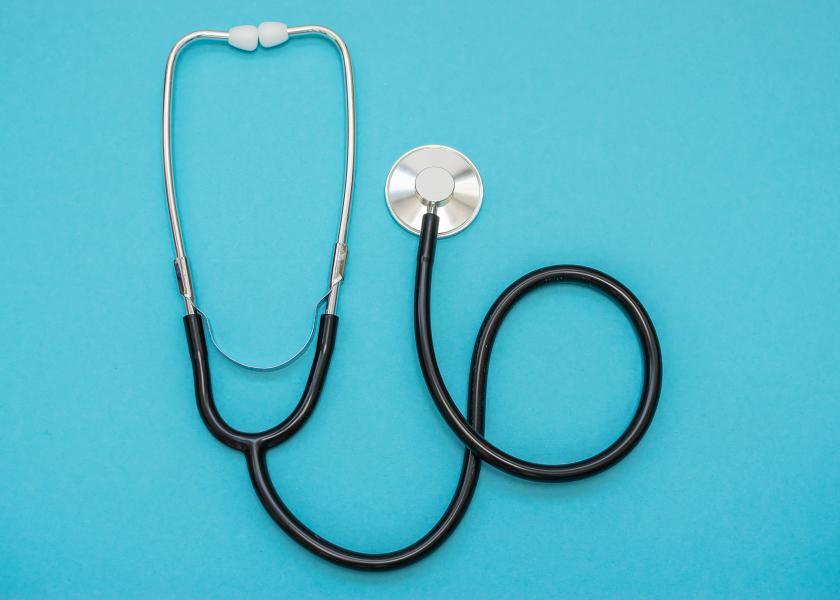Know a Calf’s Vital Signs

Have you ever noticed that even a calf you know is sick will temporarily perk up when you approach it? Because cattle are a prey species, they do their best to not look sick or vulnerable, even if they are not feeling well.
That’s why it’s important to have an objective, consistent method of evaluating calf health that catches sick animals early in the disease process, and goes beyond visual appraisal. Jillian Bohlen, veterinarian with the University of Georgia Dairy Extension Services, said evaluating the basic vital statistics of every calf fits this bill. Her advice on measuring calf vital signs included:
1.) Temperature: 100.0-102.5˚F -- Take temperatures rectally with a digital thermometer, which are much faster and safer than the old mercury type.
2.) Heart rate (pulse): 100-140 beats per minute -- Heart (pulse) rates in calves typically are double those of adult cows. Irregular heartbeat can signal illness. Pulse rate can be measured manually by placing two fingers over an artery. Easily accessible arteries are located at the base of the tail and under the jaw. Severely ill calves may have a weak pulse that is difficult to detect. In that case, measure heart rate by placing a stethoscope behind the calf’s left elbow and against the chest wall. Keep in mind that heart rate will increase when calves are moved or otherwise highly active, so attempt to measure resting heart rate for an accurate assessment.
3.) Respiration rate: 36-60 breaths per minute – Step back from the calf and watch the rise and fall of the body cavity to assess respiration. Do not place a hand in front of the calf’s nose or mouth to feel breaths, because smells or attempts to suckle will likely alter the respiration pattern. Respiration also can be evaluated using a stethoscope to listen to lung sounds and detect abnormalities such as crackles or wheezes. High respiration rates often accompany fevers as animals attempt to cool themselves.
Bohlen pointed out that high ambient temperature (78˚F) or above – especially coupled with high humidity – may cause all vital signs to increase in the calf’s natural effort to control its body temperature. In such cases, calves are not necessarily sick per se, but definitely are in need of heat-stress-abatement measures like shade, water, misters and fans.
To be prepared to assist sick or stressed calves, Bohlen recommended having the following tools on hand at all times:
- Stethoscope
- Thermometer
- Oral electrolytes to resolve dehydration
- Probiotics to restore gut microbes and health
- Nutrient-packed drenches to support calves that may be losing excessive nutrients and/or backed off feed
- Supplemental B vitamins to support appetite, metabolism and efficient energy production.
“Using these tools and products can help support ailing calves, while posing little to no risk when calf health is in question,” said Bohlen.







